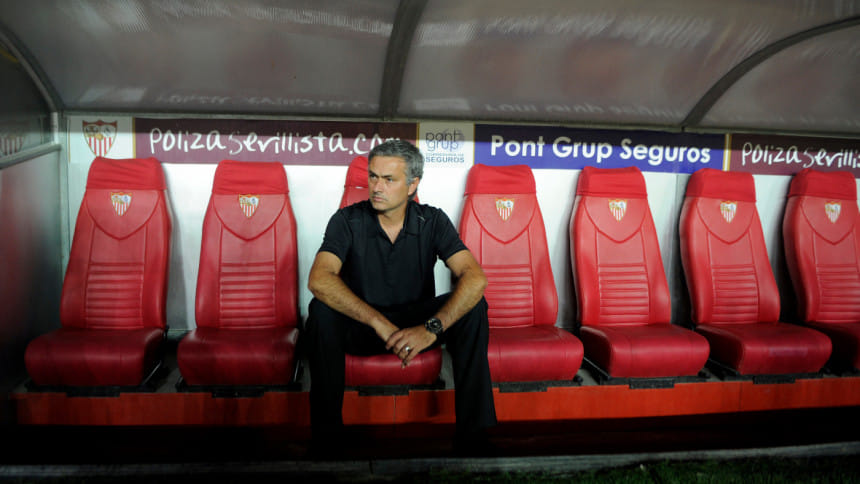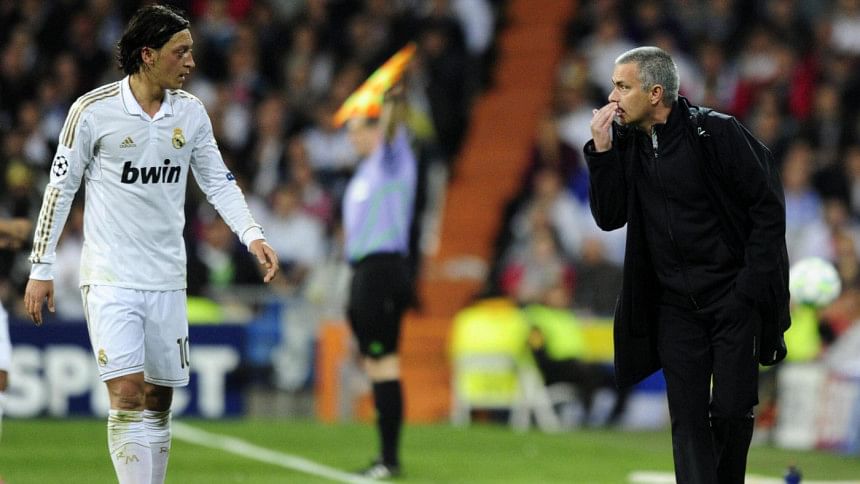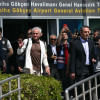The Mourinho case in changing landscape of football

"I am Jose Mourinho and I don't change. I arrive with all my qualities and my defects," Mourinho said it back in 2010 when he was announced as the manager of Real Madrid.
Mourinho lived up to his words for almost the entirety of over a 20-year-long successful yet controversial and entertaining managerial career.
But eventually, as it stands, clubs around the world are now finding that the "defects" in him outweigh the "qualities", despite the number of silverware the Portuguese boasts that definitively earned him the nickname -- "the special one" -- he had given himself.
How Mourinho has slowly fallen from grace over the years could lead to knowing what the modern era of football demands -- the demands of fans, clubs, and players -- and might as well serve as an eye-opener for the ones in the business.
Mourinho was let go by his last four clubs -- Chelsea (second spell), Manchester United, Tottenham, and AS Roma -- and all due to bad results. Roma and Italy forward Andrea Belotti had admitted that they had "hit rock bottom" in the aftermath of Mourinho's sacking which arrived hot on the heels of last month's 3-1 defeat against AC Milan at San Siro, which the 61-year-old coach could not attend from the dugout as he was serving a suspension for lashing out at officials.
Mourinho has been linked with Bayern Munich, especially since Thomas Tuchel's side now dawdle five points behind a resurgent Bayer Leverkusen, having suffered a humiliating 3-0 defeat against Xabi Alonso's men in the Bundesliga, and a potential Champions League exit following a 1-0 loss to Lazio in the first leg of their last 16 tie last week.
Mourinho's name was chanted by a large group of Chelsea fans during their 4-2 home defeat to Wolverhampton Wanderers earlier this month. Chelsea, however, somewhat recovered since then as they won their FA Cup fourth-round tie against Aston Villa and the Premier League encounter away to Crystal Palace by the same 3-1 margins, easing down the pressure on manager Mauricio Pochettino.
But regardless of the Chelsea fans' nostalgic urge and reported links to the reigning German champions Bayern, Mourinho being considered to take over at either club still seems far-fetched.
One reason for that could be the fact that the veteran coach's managerial career has followed a set pattern for most of it -- take over a side that needs a transformation, get success in the initial years before eventually losing fans or the brass' favour due to a string of losses that could be traced back to his tactical rigidity. Barring the cases of Porto (2004) and Inter Milan (2010) when he had stepped away while still being wanted at the club, this has been the trend for Mourinho.
His defensive-minded philosophy of "it's ok not to win, but we can not lose" lost traction over time, with football fans and clubs becoming more demanding. Keeping clean sheets and relying on swift counter-attacks are no longer the ultimate need as the focus has been shifted to build-up play in an attempt to outscore the opposition.
However, if defensive-minded coaches are being shunned -- in a manner of speaking -- arguments could be made regarding Diego Simeone and the style of play followed by his Atletico Madrid side.
But the goals remain different for the two.
While Simeone's way work for the Rojiblancos in getting specific results in tournaments -- Atletico Madrid are the only side who have prevented league leaders Real Madrid from winning against them on three occasions they came across this season -- Atletico, the third-horse in the Spanish league, are not demanded to go for glory all the time.

But that's not the case for Mourinho.
"The Roma fans are the most incredible I have ever seen, the coach is called Jose Harry Mourinho Potter, and he raises expectations," Mourinho's words before Roma's trip to the San Siro for his eventual final game at the helm of the Italian club has been true for most of his career. And it is only natural for someone who became the first manager to win all European Cups -- Champions League with Porto and Inter Milan, Europa League with Manchester United, and Conference League with Roma -- in history.
Another reason for Mourinho not matching the job description at top European clubs anymore could be because of how football, as a game, has been redefined in the modern era. From Deco at Porto, Wesley Sneijder at Inter, Mesut Ozil at Real Madrid to helping Paulo Dybala rediscover himself at Roma -- Mourinho's side has almost always had a special place for the classic number 10, a role that has been fading away over the past decade. Mourinho did find a way around fielding a classic number 10 and has had success, especially during his second spell at Chelsea, but that only stamped his reputation of being a pragmatist, someone who leans towards non-entertaining football.
With the discernible shift in footballing philosophies and tactics, it seems hard for coaches like Mourinho to be targeted for the top managerial jobs anymore. While the charisma, eccentricities, and penchant for wooing with witty replies may evoke nostalgia in fans, these certainly take a backseat to a coach's ability to adapt, change, and be willing to do more than just get the job done in the modern footballing landscape.

 For all latest news, follow The Daily Star's Google News channel.
For all latest news, follow The Daily Star's Google News channel. 








Comments